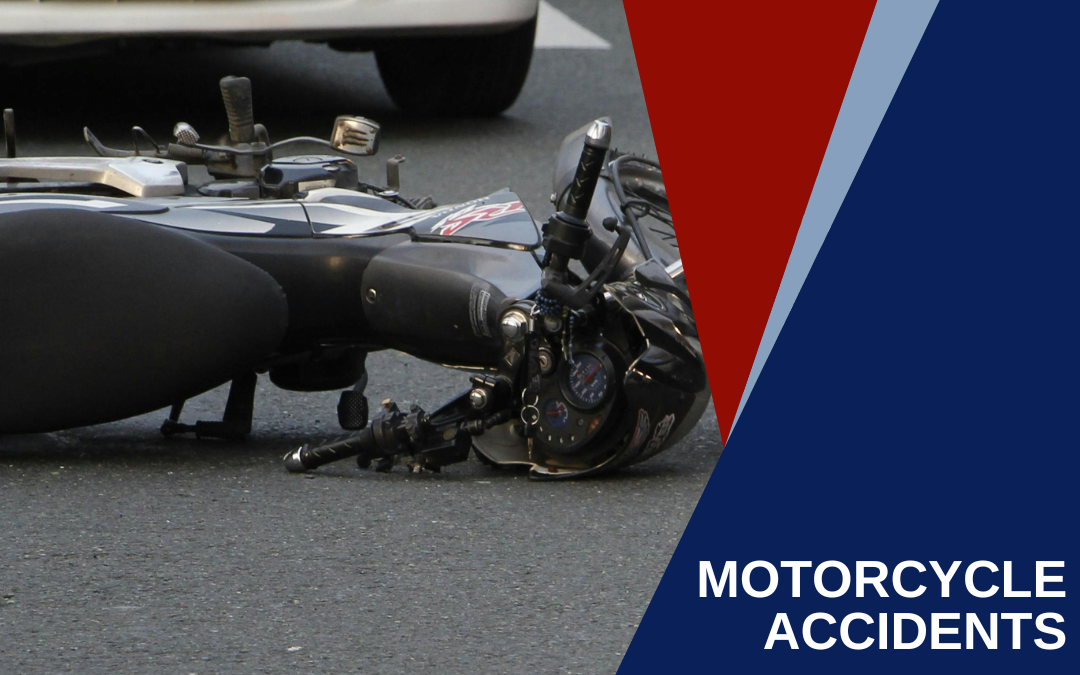
Frequently Asked Questions (FAQs) About Motorcycle Accidents
What Should I Do Immediately After a Motorcycle Accident?
Immediately after a motorcycle accident, check for injuries and call 911 for medical help if needed. Move to a safe location if possible and activate your hazard lights. Exchange information with other parties involved, including names, contact details, and insurance information. Document the scene by taking photos of your motorcycle, other vehicles, and any road conditions. Collect contact information from witnesses. Avoid discussing fault at the scene; leave that to the insurance companies and legal authorities. Notify your insurance company and seek medical attention, even if you feel fine.
How Do I File an Insurance Claim After a Motorcycle Accident?
To file an insurance claim, notify your insurance company as soon as possible. Provide them with details of the accident, including a police report if available. Submit documentation such as photos of the damage, medical records, and repair estimates. An adjuster will review the information and assess liability. Keep detailed records of all communications with your insurer and any related expenses. Your policy will outline what is covered and any deductibles. Your insurer will either pay for repairs or offer a settlement based on the claim evaluation.
What Are My Legal Rights After a Motorcycle Accident?
After a motorcycle accident, you have the right to seek compensation for damages if another party is at fault. This compensation may cover medical expenses, vehicle repairs, lost wages, and pain and suffering. If the other driver is responsible, you can file a claim with their insurance or pursue a personal injury lawsuit. Gather evidence such as accident reports and medical records to support your claim. Be aware of the statute of limitations in your state, and consult with an attorney to understand your rights and navigate the legal process.
What Should I Do If the Other Driver Involved in the Accident Is Uninsured or Underinsured?
If the other driver is uninsured or underinsured, check if you have uninsured or underinsured motorist coverage on your policy. Notify your insurance company about the accident and provide all relevant details. They will guide you through the claims process under this coverage. If you do not have this coverage, you may need to pursue legal action against the driver or their assets. Consulting with an attorney can help you explore your options and ensure you receive appropriate compensation.
How Can I Determine Liability in a Motorcycle Accident?
Determining liability involves reviewing the circumstances of the accident, such as adherence to traffic laws and actions of both parties involved. The police report, witness statements, and evidence like photos of the accident scene and vehicle damage are crucial. Fault may be shared or one party may be fully responsible. Consulting with an attorney can help you analyze the evidence, determine liability, and pursue the appropriate claims.
What Should I Do If the Insurance Company Offers a Low Settlement?
If the insurance company offers a low settlement, review the offer carefully and compare it with your documented expenses and damages. You are not obligated to accept the initial offer. Consider negotiating with the insurer or seeking a higher settlement that more accurately reflects your costs. Consulting with an attorney can help you assess the offer and negotiate effectively. If necessary, you may need to pursue further legal action to ensure you receive fair compensation.
What Are the Common Injuries Sustained in Motorcycle Accidents?
Common injuries from motorcycle accidents include road rash, broken bones, head and brain injuries, spinal cord injuries, and internal injuries. Motorcycles offer less protection than cars, making riders more vulnerable. Seek immediate medical attention even for seemingly minor injuries, as some may not be immediately apparent. Proper documentation of injuries and treatment is essential for insurance claims and legal proceedings.
How Does a Motorcycle Accident Affect My Insurance Premiums?
A motorcycle accident can lead to higher insurance premiums due to the increased risk profile. If you are at fault, expect a potential rate increase. However, if you are not at fault and can provide evidence, the impact on your premiums may be less severe. Insurance companies may also consider factors such as your driving record and accident frequency. Reviewing your policy and shopping for quotes from different insurers can help manage the cost impact.
What Should I Know About Motorcycle Safety Gear and Its Role in an Accident?
Motorcycle safety gear, including helmets, gloves, jackets, and boots, plays a critical role in reducing injuries during an accident. Helmets are required by law in many states and can significantly reduce head injuries. Protective clothing can mitigate road rash and reduce the severity of other injuries. While safety gear does not prevent accidents, it enhances protection and can be a factor in determining compensation if gear usage is questioned. Always wear appropriate gear to improve safety and potentially support your claim in the event of an accident.
How Can I Prove Negligence in a Motorcycle Accident?
To prove negligence, you must show that the other party failed to exercise reasonable care, causing the accident. Gather evidence such as police reports, witness statements, and photographs of the scene and vehicle damage. Demonstrate that the other party’s actions, such as speeding or failing to yield, breached their duty of care. Medical records and expert testimonies can also support your case. Consulting with an attorney can help you compile and present evidence to establish negligence and pursue compensation.
These articles are for general informational purposes only and are not legal advice. Contact us today to discuss your specific situation.
